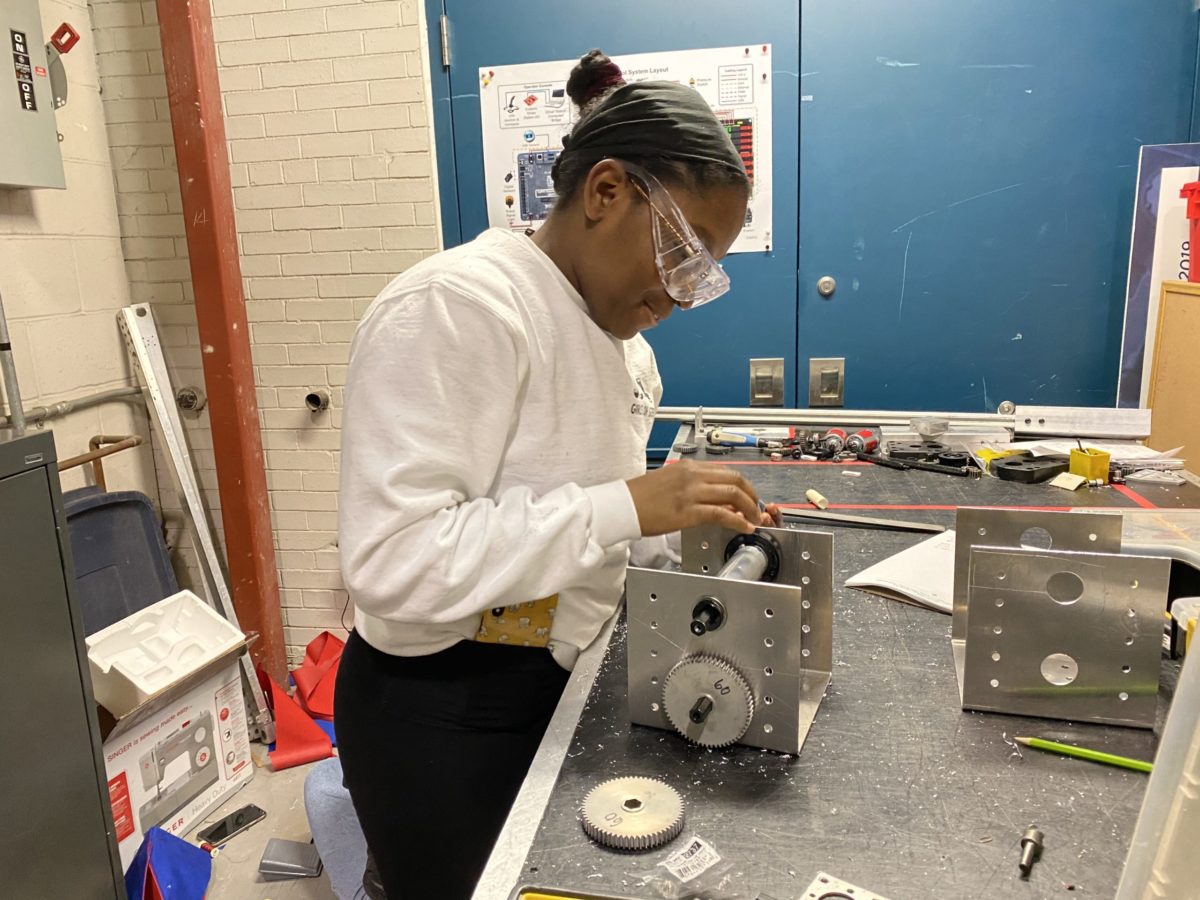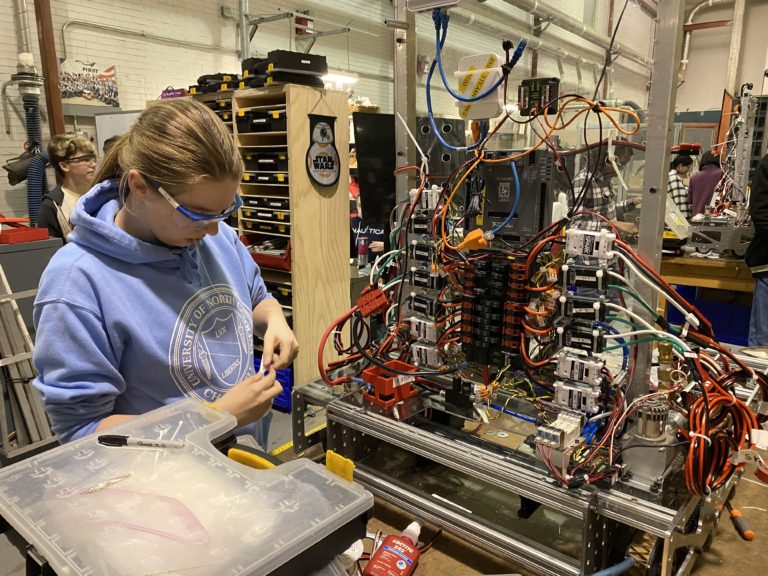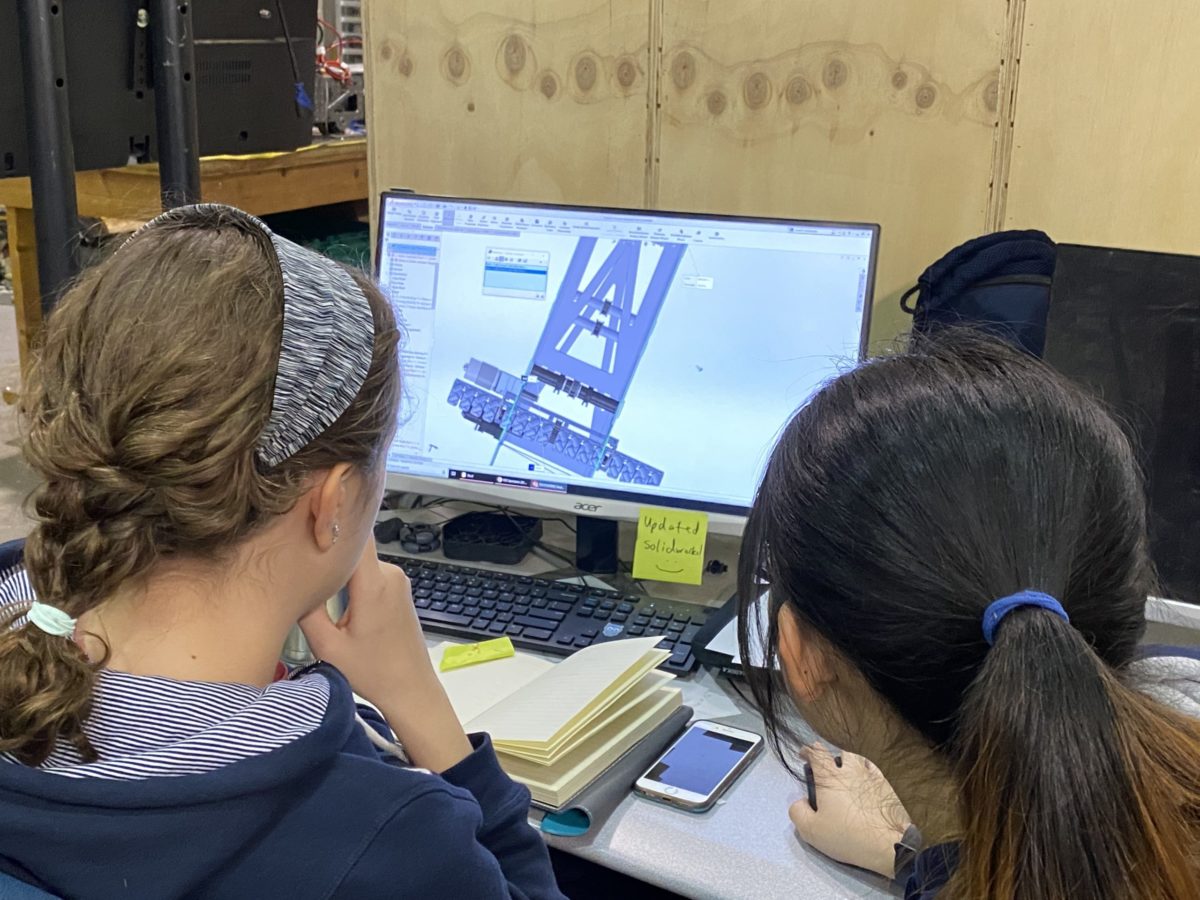Molly Urbina did not want to join Girls of Steel.
“I was very opposed,” she said about the youth robotics team, which her mom had suggested she join back in 2012. “I was like, I don’t want to go to this. I’m not gonna do robotics.”
But she did, and by the end of her first year, she knew she wanted to pursue engineering in college. She’s now a mechanical engineer at Lawrenceville-based IAM Robotics.
Over the last decade, youth-centric pathways into Pittsburgh’s tech industry have become more common, with courses in public and private schools alike aiming to bring early experiences in coding, 3D modeling and other skills to students. But school resources and funding can be limited, especially as the COVID-19 pandemic continues to present basic remote learning challenges. So other Pittsburgh youth organizations in STEM remain to pick up the slack.
The hope is that early exposure to STEM will result in an increased likelihood of entering the field later on — and a more diverse pipeline for a predominantly white, male industry. By giving more students a chance to have hands-on experiences in robotics or coding or other STEM disciplines, the programs not only broaden youth ideas of what a career in tech could look like, but create a more robust local talent pool for the immense volume of tech jobs that go unfilled.
One such program is Girls of Steel, founded in 2010 out of Carnegie Mellon University’s Field Robotics Center.
“The vision I had was to get more girls engaged in robotics,” cofounder Patti Rote told Technical.ly. She launched the first program with the help of fellow cofounder George Kantor, a research professor at the CMU Robotics Institute. What started as an idea to form a team to enter FIRST Robotics competitions and challenges soon became a chance to build a community of mentorship and support. While the first cohort had just over 20 high school students, Rote said that “within two years, we saw something else — that we could grow this and get more kids involved and also teach them other skills, so it’s not just about building a robot.”

Soon, Girls of Steel expanded to offer co-ed programs to grade school students, and set up mentorship for the younger students from the high school team. After one of Girls of Steel’s teams first qualified for the world championship competition in 2011, “it just seems like people wanted to know what we were doing,” said Theresa Richards, the Girls of Steel outreach program manager. The success of that first year brought attention to the program, which has attracted students from over 20 different schools, including public, private, cyber and homeschool options.
And there are signs that Girls of Steel’s approach is working. The program reports a 100% high school graduation rate and 100% post-secondary school attendance rate. Perhaps that’s not notable because the girls who opt to participate in such a program are likely more academically inclined in the first place. But what is notable? That 80% of alumnae major or work in a STEM-related field.
Pragna Mannam is another grad who entered STEM. Now pursuing her Ph.D. in robotics at CMU, she joined Girls of Steel during high school in the program’s first year. She’d previously participated in STEM camps and other programs in grade school, “but my first real exposure to robotics was Girls of Steel,” she said. “I really just liked the interdisciplinary aspect of it, working on software and hardware.”
She went on to study electrical engineering as an undergraduate at CMU, followed by a master’s degree in robotics at the university after volunteer work at robotics labs. But Mannam credits Girls of Steel with the initial inspiration to pursue a career in the field, and remains in contact with the organization and other alumnae today.

For IAM Robotics’ Urbina, competing with Girls of Steel allowed her to see the potential end results of working in STEM beyond classes, which helped her see beyond some of the tougher classes for her degree.
“One thing that got me through college was like, ‘I know this class is terrible. I know I’m not doing so great,” she said. “But I know I love what the end result so I’m going to keep going to get there.”
Since Mannam and Urbina were part of the program, Girls of Steel has grown to the point that it now often receives more applications than it can accommodate, meaning some students are turned away. And though the organization benefits from some grants, sponsorships and other donations, there can be a barrier to entry via a participation fee for students (though this was eliminated for the 2020-2021 season). The time commitment outside of school to participate can be a barrier for some, too.
But Girls of Steel is far from the only option for students interested in robotics or STEM anymore. The organization is part of Remake Learning, a network established in Pittsburgh in 2007 to bring together people and institutions to foster collaborations in innovative education.
“The initial days of Remake Learning, there really were just organizations coming together and sharing what they are working on, as it pertains to educational innovation,” said Director Tyler Samstag. “And Remake Learning has kind of thrived and grown to over 1,200 people, projects and organizations.”
Samstag, who also works as the director of instructional innovation for the Allegheny Intermediate Unit, supports local school districts with establishing computer science curricula.
“The main thing to emphasize is that the availability of computer science has grown significantly within schools over the last five years,” he said, pointing to programs like the PAsmart initiative and other sources of funding that have supported new computer science or STEM courses in area school districts from kindergarten through high school.

The number of out-of-school opportunities like Girls of Steel has increased over the last decade too, with such programs becoming common at places like the local Boys and Girls Clubs. And for many of these initiatives, Samstag said, equity is the focus.
Despite Pittsburgh’s tech prowess, the local industry is sorely lacking in diversity, with a workforce that’s not reflective of the city’s population. Those failings have significant consequences. Earlier this month, Technical.ly published local high-earner income data from 2009 to 2019, indicating that while tech is driving new wealth in Pittsburgh, it’s only doing so for certain populations.
Part of the solution to that gap will come from increased accessibility in entry pathways to tech, but Samstag notes youth organizations alone can’t fix all of the issues behind those income inequities.
“That’s a huge challenge, and if we want to address that, it’s not going to be a single organization, and it has to be different organizations coming together,” he said, adding that prioritizing equity in those communities is one of Remake Learning’s main goals.
That goal is shared by Rec2Tech, a City of Pittsburgh initiative in collaboration with Baltimore City and the Digital Harbor Foundation to make recreation centers a destination for STEM and tech education.
Rec2Tech's Max Dennison sees a two-pronged issue for youth access to the tech industry: opportunity and exposure.
“We don’t close our doors to anyone,” said Rec2Tech Coordinator Max Dennison. “But I would say 80 to 90% of the students that we serve, both in person and online, come from some type of public school, and they usually frequent one of our recreation centers.”
Dennison sees a two-pronged issue for youth access to the tech industry: opportunity and exposure. He sees the latter as the one Rec2Tech can best address. Often, in panels or community meetings he attends, he notes that “the average person doesn’t know what it means to code, or what it means to program, or what computer science is or what artificial intelligence is,” he said. And that’s a problem, given those are some of the driving forces behind Pittsburgh tech.
By providing free and easily accessible tech instruction at recreation centers, paired with mentorship programs and regular talks with adults work in tech, Dennison hopes that students will become more aware of the possibilities in the field. But, like other community leaders, he thinks that there should be more going on to get people of all backgrounds involved with the field. Awareness of education and career pathways should be constant, he said, because a need for those skills will soon be omnipresent in the global economy.
For Pittsburgh, he wants to see that recognition of tech reach local sports-level fame.
“It’s just going to dominate the way we live,” he said. “So although there are some really good programs now, and I salute everybody that’s working tirelessly to kind of make this a norm — until it’s as normal as we talk about the Steelers, we still have work to do.”








